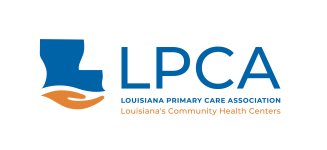The Louisiana Primary Care Association Inc. was established in 1982 as a nonprofit trade association whose purpose is to promote access to affordable, high-quality primary health care for medically underserved and uninsured populations. The LPCA is a membership organization of Federally Qualified Health Centers (FQHCs) that operate more than 400 service delivery sites across Louisiana. Headquartered in Baton Rouge, LPCA directs its efforts to ensure that FQHCs remain viable providers of primary healthcare throughout Louisiana.The Community Health Center model simply make sense in Louisiana, for both its physical and financial well-being.
FQHCs, also known as Community Health Centers, are health care service providers that are federally designated through a competitive grant process. FQHCs are required to provide high-quality, affordable, comprehensive primary and preventative care to any patient, regardless of their ability to pay for services or their insurance status. Offering primary care, behavioral health and oral health services, FQHCs ensure affordability by charging uninsured patients using a sliding scale model that assesses a fee according to the patient’s household income. These health care delivery sites are strategically placed in areas across Louisiana with low physician-to-population ratios to ensure that all residents have access to health care services.
Nationwide, Community Health Centers serve the primary health care needs of over 30.5 million patients through nearly 1,400 health centers and more than 100 Health Center Program look-alike organizations. They play a crucial role in the nation’s health care system, providing affordable health services for millions of uninsured, the working poor and newly jobless Americans. They lower overall health care costs, improve the health of their patients, and generate economic opportunities in the areas they serve by providing jobs and technical training to local communities.
Community Health Centers are innovative in their approach to governance and administration. Each health center is governed by a board of directors. The board must include a majority of active, registered patients of the health center who are representative of the populations served by the organization. This ensures that each health center takes a tailored approach to meet the unique needs of the people in its surrounding community. That local approach to health care, combined with an emphasis on comprehensive preventative care, generates $24 billion in annual savings to the health care system—for the American taxpayer, local, state and federal governments, public and private payers alike.
Louisiana currently has 41 FQHC organizations operating over 400 service delivery sites. These sites are located in all regions of the state, both urban and rural. They collectively serve over 470,000 patients a year.
Aside from their impact on health outcomes, Louisiana’s Community Health Centers save the state money. In 2022, FQHCs saved Louisiana taxpayers $896.7 million by emphasizing the importance of preventative treatment and keeping people out of the emergency room.
In many rural areas, the local FQHC is one of the largest and most stable employers. By supporting 4,067 jobs, health centers spur economic growth and lower unemployment, resulting in a $1,182.9 billion total economic impact. The Community Health Center model simply makes sense in Louisiana for both its physical and financial well-being.





